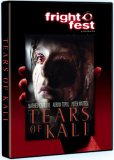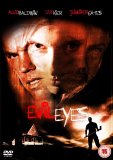![Urbanized [DVD] [2011]](/pictures/1113728.jpg) Urbanized | DVD | (13/02/2012)
from £24.28
| Saving you £-6.29 (-35.00%)
| RRP
Urbanized | DVD | (13/02/2012)
from £24.28
| Saving you £-6.29 (-35.00%)
| RRP The final documentary in director Gary Hustwit's design film trilogy (Helvetica, Objectified), Urbanized features some of the world's foremost architects, planners, policymakers, and thinkers, including Sir Norman Foster, Rem Koolhaas, Jan Gehl, Oscar Niemeyer, Amanda Burden, Enrique Pealosa, Alejandro Aravena, Eduardo Paes, Rahul Mehrotra, Ellen Dunham-Jones, Ricky Burdett, James Corner, Michael Sorkin, Bruce Katz, Candy Chang, Edgar Pieterse, and many more, including extraordinary citizens who have affected change in their cities.Who is allowed to shape our cities, and how do they do it? And how does the design of our cities affect our lives? By exploring a diverse range of urban design projects in dozens of cities around the world, from massive infrastructure initiatives to temporary interventions, Urbanized frames a global discussion on the future of cities.
![The New Adventures Of Pinocchio [1999]](/pictures/1010008.jpg) The New Adventures Of Pinocchio | DVD | (09/05/2005)
from £7.57
| Saving you £-1.58 (N/A%)
| RRP
The New Adventures Of Pinocchio | DVD | (09/05/2005)
from £7.57
| Saving you £-1.58 (N/A%)
| RRP The New Adventures of Pinocchio is the charming sequel to the 1996 live-action movie. With a largely brand-new cast, the most important returning actor is Martin Landau as Geppetto. His role is pared down, however, by a neat twist in the tale. Udo Kier is the other returning actor, this time in the new bad guy/girl role of Madame Flambeau, whose carnival sets itself up in Pinocchio's town and offers everyone a miracle elixir to change their lives. Pinocchio (now played as a real boy by Gabriel Thomson) hopes the elixir will make his papa feel better from a nasty cold, but it turns out Flambeau tricked him with puppet-making juice. So now it's Geppetto who's the wooden star of the show! Lots of surprises keep the story happily moving along, with secret identities waiting to spring from the likes of Warwick Davis as the ringleader Dwarf. The Jim Henson Studio puppets are first class as always, with some flawless computer graphics coming to the rescue every so often. There's a beautiful backdrop of Luxembourg countryside too for this pantomime where everyone looks as if they had great fun putting it together. --Paul Tonks
![Story Of O [1975]](/pictures/1020441.jpg) Story Of O | DVD | (30/10/2000)
from £N/A
| Saving you £N/A (N/A%)
| RRP
Story Of O | DVD | (30/10/2000)
from £N/A
| Saving you £N/A (N/A%)
| RRP Box Set complete with DVD and Novel STORY OF 'O' is based on the hugely successful S&M novel that has been read by millions of people worldwide. The author Pauline Reage tells the story of a beautiful young woman known only as 'O' who is taken by her boyfriend Rene to a chateau just outside Paris. There 'O' is trained in bondage and sexual perversion. 'O' is deeply in love with Rene and in order to prove her love she allows herself to be subjected to all kinds of degradation and abuse. Finally, Rene discharges a personal debt by transferring possession of 'O' to his stepbrother Sir Stephen. In the film which produced in 1975, Just Jaeckin the director explores the cruel world in which 'O' finds herself. A world of sado-masochism and kinky and bizarre sexual practices. The film was refused certification when it was originally submitted, has now been passed uncut by the BBFC.Also Available as a DVD only version.
![Love Object [2003]](/pictures/1021757.jpg) Love Object | DVD | (05/07/2004)
from £N/A
| Saving you £N/A (N/A%)
| RRP
Love Object | DVD | (05/07/2004)
from £N/A
| Saving you £N/A (N/A%)
| RRP Kenneth is socially insecure. But when he buys 'Nikki' a silicone sex doll over the internet. Because of his experience with his new toy Kenneth's life takes a turn for the better when he attracts the attention of a real girl Lisa. But when the doll's jealous personality invades his consciousness Kenneth becomes trapped in a perverse triangle torn between the silicone Nikki and the flesh and blood Lisa.
![Suspiria [1976]](/pictures/1048556.jpg) Suspiria | DVD | (23/10/2006)
from £N/A
| Saving you £N/A (N/A%)
| RRP
Suspiria | DVD | (23/10/2006)
from £N/A
| Saving you £N/A (N/A%)
| RRP Inspired by Thomas De Quincey's 'Suspiria de Profundis' and co-written by Argento and his long-term partner Daria Nicolodi SUSPIRIA is Argento's undisputed masterpiece of Grand Guignol horror hitting new peaks of terror through its stunning photography (courtesy of Luciano Tovoli) eye-popping production design and terrifying atmosphere of dread - thanks in no small part to the great score from Goblin! Susy Banyon (Jessica Harper) is an American ballet student travelling to Germany to study at an exclusive dance academy in the Black Forest. After one of the students and her friend are hideously murdered in the first of Argento's breath-catching set-piece killings Susy discovers that the academy has a bizarre history and as the body count rises she gets involved in a hideous labyrinth of murder black magic and madness...
 Mary Higgins Clark - He Sees You While You're Sleeping | DVD | (07/03/2005)
from £4.98
| Saving you £5.01 (100.60%)
| RRP
Mary Higgins Clark - He Sees You While You're Sleeping | DVD | (07/03/2005)
from £4.98
| Saving you £5.01 (100.60%)
| RRP When high-flying stockbroker Sterling Brooks encounters a little divine intervention on the golf course he is given a second shot at redeeming his selfish existence. The problem is he has to prove his worth to his beautiful ex Annie Campbell (Erika Eleniak) and the feisty young daughter Marissa he never knew he had... Mystery based on the novel by Mary Higgins Clark.
![Mark Of The Devil [1969]](/pictures/1047293.jpg) Mark Of The Devil | DVD | (18/09/2006)
from £N/A
| Saving you £N/A (N/A%)
| RRP
Mark Of The Devil | DVD | (18/09/2006)
from £N/A
| Saving you £N/A (N/A%)
| RRP Superstition and witchcraft torment the people in the 17th century. A witch hunter terrorises a provincial town. He rapes the women tortures them on the rack and burns them at the stake. A charming young girl and the young assistant to the Chief Inquisitor conspire to put an end to the foul deeds of this libertine. However they fall into great danger when the Inquisitor arrives in the town to commence his dreaded trials. He accuses the young girl of witchcraft and subjects her to terrifying cross-examoination. The young assistant who has so far been loyal to his master is concious-stricken. Should he really believe that his beloved is a witch? Under dramatic circumstances he learns the true nature of his master - his sexual hysteria and the perverse background of his bloodthirsty punishments. As soon as he openly turns against the Inquisitor the young man falls into a fatal trap.He loses his life during a revolt from which the Chief Inquisitor only just escapes the fury of the frenzied crowd. His beloved finds his body. Unable to comprehend outraged without hope and filled with grief she is lost in the holocaust of the middle ages.
![Blade [UMD Universal Media Disc]](/pictures/1034765.jpg) Blade | UMD | (01/09/2005)
from £21.99
| Saving you £-4.00 (N/A%)
| RRP
Blade | UMD | (01/09/2005)
from £21.99
| Saving you £-4.00 (N/A%)
| RRP The recipe for Blade is quite simple; you take one part Batman, one part horror flick, and two parts kung fu and frost it all over with some truly campy acting. What do you get? An action flick that will reaffirm your belief that the superhero action genre did not die in the fluorescent hands of Joel Schumacher. Blade is the story of a ruthless and supreme vampire slayer (Wesley Snipes) who makes other contemporary slayers (Buffy et al.) look like amateurs. Armed with a samurai sword made of silver and guns that shoot silver bullets, he lives to hunt and kill "Sucker Heads". Pitted against our hero is a cast of villains led by Deacon Frost (Stephen Dorff), a crafty and charismatic vampire who believes that his people should be ruling the world, and that the human race is merely the food source they prey on. Born half-human and half-vampire after his mother had been attacked by a blood-sucker, Blade is brought to life by a very buff-looking Snipes in his best action performance to date. Apparent throughout the film is the fluid grace and admirable skill that Snipes brings to the many breathtaking action sequences that lift this movie into a league of its own. The influence of Hong Kong action cinema is clear, and you may even notice vague impressions of Japanese anime sprinkled innovatively throughout. Dorff holds his own against Snipes as the menacing nemesis Frost, and the grizzly Kris Kristofferson brings a tough, cynical edge to his role as Whistler, Blade's mentor and friend. Ample credit should also go to director Stephen Norrington and screenwriter David S. Goyer, who prove it is possible to adapt comic book characters to the big screen without making them look absurd. Indeed, quite the reverse happens here: Blade comes vividly to life from the moment you first see him, in an outstanding opening sequence that sets the tone for the action-packed film that follows. From that moment onward you are pulled into the world of Blade and his perpetual battle against the vampire race. --Jeremy Storey
![Manderlay [2005]](/pictures/1039840.jpg) Manderlay | DVD | (03/07/2006)
from £6.99
| Saving you £13.00 (185.98%)
| RRP
Manderlay | DVD | (03/07/2006)
from £6.99
| Saving you £13.00 (185.98%)
| RRP Manderlay is a plantation in 1933 Alabama whose residents live as though slavery hadn't been abolished 70 years earlier.
![71 Fragments of a Chronology of Chance [DVD]](/pictures/1092825.jpg) 71 Fragments of a Chronology of Chance | DVD | (25/05/2009)
from £N/A
| Saving you £N/A (N/A%)
| RRP
71 Fragments of a Chronology of Chance | DVD | (25/05/2009)
from £N/A
| Saving you £N/A (N/A%)
| RRP Haneke's articulate critique of the isolating effects of western society the media and television in particular is composed of an intricate series of unrelated scenes culminating in an apparently motiveless act of violence. Perfectly paced and executed Haneke's skilful weaving of these tableaux into a coherent and compelling whole is mesmerising and strangely beautiful.
![Invincible [DVD]](/pictures/1114442.jpg) Invincible | DVD | (28/05/2012)
from £12.98
| Saving you £5.00 (45.50%)
| RRP
Invincible | DVD | (28/05/2012)
from £12.98
| Saving you £5.00 (45.50%)
| RRP Of all the tales from Weimar Germany there is none stranger than that of Zishe Breitbart (Jouko Ahola). He was a Jewish blacksmith’s son who became a sensation in Berlin in the 1930s performing as a mythical Nordic-style strongman. His employer was con-man, cabaret show promoter and self-proclaimed mystic Hannussen (Tim Roth) who dreamed of forming a Ministry of the Occult in Hitler’s government. As anti-Semitism took hold, Hannussen’s star act decides he has been chosen by God to warn his people. Werner Herzog’s fundamental and quite brilliant allegorical fable boasts an original score by legendary composers Hans Zimmer and Klaus Badelt. Special Features: Trailer Image bank
![Mark Of The Devil [1969]](/pictures/1012437.jpg) Mark Of The Devil | DVD | (23/06/2003)
from £20.00
| Saving you £-14.01 (-233.90%)
| RRP
Mark Of The Devil | DVD | (23/06/2003)
from £20.00
| Saving you £-14.01 (-233.90%)
| RRP An apprentice witch hunter (Kier) believes strongly in his mentor (Lom) and the ways of the church but loses faith when begins to see that the witch trials are nothing but a scam for the clergy to rob people of their land and money...
![The Last Minute [2002]](/pictures/1019001.jpg) The Last Minute | DVD | (12/11/2007)
from £N/A
| Saving you £N/A (N/A%)
| RRP
The Last Minute | DVD | (12/11/2007)
from £N/A
| Saving you £N/A (N/A%)
| RRP Billy Byrne (Max Beesley) wants to be famous. He thinks he'll get eveything he wants when he's famous. He has a talent for selling himself for making people think he should be famous and he gets an agent who promises him the world. And then it all goes wrong. The world is indifferent to his talent. Billy's world is shattered and and he descends into a hostile 21st century version of a Victorian underworld squirming with all manner of thieves beggars and low lifes rejected by society...
 Tears Of Kali | DVD | (30/01/2006)
from £8.07
| Saving you £-4.08 (-102.30%)
| RRP
Tears Of Kali | DVD | (30/01/2006)
from £8.07
| Saving you £-4.08 (-102.30%)
| RRP In the end of the '70s Poona in India was one of the harbours for those looking for inspiration. In the early '80s several communes and self-experiencing groups where established. From the biggest group the Raijnish-group many smaller groups did split. In their own ways they started to seek a therapy for what they looked upon as a ""sickness of the western world"". One of they groups was the infamous Taylor-Eriksson group who did not accept any limits for their experiments. Althoug
 The Michael Haneke Trilogy | DVD | (04/12/2006)
from £N/A
| Saving you £N/A (N/A%)
| RRP
The Michael Haneke Trilogy | DVD | (04/12/2006)
from £N/A
| Saving you £N/A (N/A%)
| RRP The Seventh Continent (1989): Described by Haneke as a reflection on ""the progressive emotional glaciation of Austria "" The Seventh Continent focuses on George (Dieter Berner) a middling engineer and his sardonic wife Anna (Birgit Doll). Unable to empathize with their daughter's compulsion for lying and uninterested in each other's emotional well-being the couple turns their pedestrian way of life into a vortex of subjective malaise. And while a recurring ad for an Australian vacation stands as a signal of potential blissfulness the couple's perfunctory melancholy eventually materialized into barbarism. Based on a true story and filmed as a succession of beautifully composed and yet mundane tableaux this unsentimental depiction of individual and family collapse ""ranks among the most truly terrifying in modern cinema"" (Michael Wilmington Chicago Tribune). More than a metaphor of hope and escape The Seventh Continent is a meticulous dive into the postmodern disregard of affect - and a stark look at lives severed from feelings. Benny's Video (1993): Winner of the FIPRESCI award given by the International Federation of Film Critics in 1993 Benny's Video is the second installment of Michael Haneke's (The Piano Teacher Cache) ""emotional glaciation"" trilogy. Written and directed by Haneke the bone-chilling story opens with the amateur footage of a pig being slaughtered with a butcher gun. This unceremonious recording is owned by 14-year-old Benny (Arno Frisch; Haneke's Funny Gamers) a boy whose preferred mediums of experience are video cameras action movies and the surveillance monitors placed in his room. Accustomed to a trite routine of school activities daily visits to a local video store and hours in front of his bedroom TV Benny finds himself enthralled by his tape of a slaughtered swing. Staying alone is his parents' apartment Benny eventually brings home an unknown girl immediately exposing her to the rapturous videotaping. Then after revealing that he stole the gun that took the pig's life Benny coldly shoots his guest and turns his unwrought curiosity into a slaughter video franchise. ""I once saw a TV program about the tricks they use in action films "" says Benny. ""It's all ketchup and plastic."" By colliding the differences between frames and flesh Haneke's sophomore theatrical release offers a lucid depiction of human beings deprived of their capacity to empathize with - and be hurt by - others. 71 Fragments Of A Chronology Of Chance (1994): With his signature cold cerebral style his long slow takes and meticulous action Austrian director Michael Haneke presents a series of isolated scenes of unrelated people that culminates in an act of sudden and senseless violence in a bank. 71 Fragments Of A Chronology Of Chance delves into some of the prevalent themes of Haneke's earlier films The Seventh Continent and Benny's Video: existential isolation the oppressive force of contemporary western civilization the effects of television on human experience and sudden inscrutable violence. Similar to Antonioni Haneke has become one of the contemporary cinema's greatest provocateurs deliberately withholding crucial information and denying any audience expectation. The eerie and beautiful 71 Fragments Of A Chronology Of Chance hovers between a terrible nihilism and a tenuous humanism.
![Weill: Aufsteig und Fall der Stadt Mahagonny [1998]](/pictures/1028714.jpg) Weill: Aufsteig und Fall der Stadt Mahagonny | DVD | (30/01/2001)
from £33.73
| Saving you £-8.74 (N/A%)
| RRP
Weill: Aufsteig und Fall der Stadt Mahagonny | DVD | (30/01/2001)
from £33.73
| Saving you £-8.74 (N/A%)
| RRP Kurt Weill's complex score reigns supreme in Peter Zadek's 1998 Salzburg Festival staging of The Rise and Fall of the City of Mahagonny, the collaboration with Brecht which became a target for Nazi insurrection on its 1930 premiere. The city itself is suggested by the attitudes and personalities of the singers rather than by Richard Peduzzi's Spartan sets. It's bleak stuff in many ways, not least in its vision of the human state: squaring up to corruption is a lonely and fatal business. But thanks to Weill's musical eclecticism, which ranges from barbershop to lieder, there are moments of intense beauty, not least in the duets between lumberjack Jimmy Mahoney and prostitute Jenny. There are, too, flashes which anticipate Weill's American future on Broadway. The lilting "Alabama Song", that gift to every would-be cabaret artist in search of a Lotte Lenya moment, works wonderfully as an ensemble piece. Despite occasional inaudibility, the singing is often breathtaking. Gwyneth Jones is a majestic Begbick, Catherine Maltifano's voluptuous and earthy Jenny also has a rarely seen sweetness and Jerry Hadley's Jimmy Mahoney is ultimately almost unbearably moving. Food for thought, indeed. On the DVD: The Rise and Fall of the City of Mahagonny is presented in 16:9 picture format, but would have benefited from the scale of a widescreen treatment. It can be difficult to keep track of everything that's going on. The cavernous stage is probably responsible for the acoustics which sometimes allow the orchestra to overwhelm the singing, otherwise well served by the PCM stereo sound. There are no DVD extras but the excellent booklet and production notes are welcome.--Piers Ford
 Evil Eyes | DVD | (11/04/2005)
from £6.98
| Saving you £4.01 (36.50%)
| RRP
Evil Eyes | DVD | (11/04/2005)
from £6.98
| Saving you £4.01 (36.50%)
| RRP Evil Eyes is about a screenwriter working on a horror film and devising unique deaths for its characters. Unfortunately for him these begin coming true for his friends! Plenty of bloody effects by Rocky Faulkner.
![Holly [DVD] [2006]](/pictures/1098665.jpg) Holly | DVD | (29/03/2010)
from £N/A
| Saving you £N/A (N/A%)
| RRP
Holly | DVD | (29/03/2010)
from £N/A
| Saving you £N/A (N/A%)
| RRP Holly
![Revenant [1998]](/pictures/1021712.jpg) Revenant | DVD | (26/07/2004)
from £N/A
| Saving you £N/A (N/A%)
| RRP
Revenant | DVD | (26/07/2004)
from £N/A
| Saving you £N/A (N/A%)
| RRP Los Angeles has a discreet community of glamorous sophisticated and hip vampires. Bacchanals of blood and sex are confined to private underground clubs. Anonymity is compromised by Nico a bloodsucking seductress gaining notoriety as the 'Hollywood Slasher'. Dallas valiantly tries to reform and save her. When crusty old Frederick Van Helsing unwittingly hires inner city gangbangers as his vampire hunting assistants an outrageous juxtaposition of characters and cultures is set in
![Red Letters [2000]](/pictures/1021996.jpg) Red Letters | DVD | (09/02/2004)
from £N/A
| Saving you £N/A (N/A%)
| RRP
Red Letters | DVD | (09/02/2004)
from £N/A
| Saving you £N/A (N/A%)
| RRP Red Letters has all the makings of a classic Hitchcock thriller: a hapless hero who thinks he's smarter than he is, an unpredictable femme fatale, snaky plot twists, and an all-around excellent cast. Professor Dennis Burke (Peter Coyote) wrote a sizzling erotic novel called Red Letters 20 years ago--but since then his wife has died from a protracted illness and he's been fired from a job because of an affair with a student. So he's grateful to be given a second chance at a small California college where he lectures on Hawthorne--only all his students are more interested in Burke's own writing than Hawthorne's. Burke starts receiving letters for the former resident of his apartment that are from a woman in prison named Lydia (Nastassja Kinski) with a 30-year sentence for murder. Burke writes back and their correspondence takes a turn for the intimate when she asks him to visit her. Burke isn't sure what he's getting into, and his life is further complicated when the daughter of the college Dean (Fairuza Balk) starts making advances. Suddenly Lydia has escaped, his best friend (Jeremy Piven) is arrested for hacking into the prison computer system, and the Dean suspects Burke of trifling with his daughter. The movie loses focus at the very end, but until then it's a smart, well-written, subtle, and unpredictable film that actually gives its characters some depth and grit. Even the more implausible moments are fun and engaging, making this well worth checking out. --Bret Fetzer

Please wait. Loading...
This site uses cookies.
More details in our privacy policy